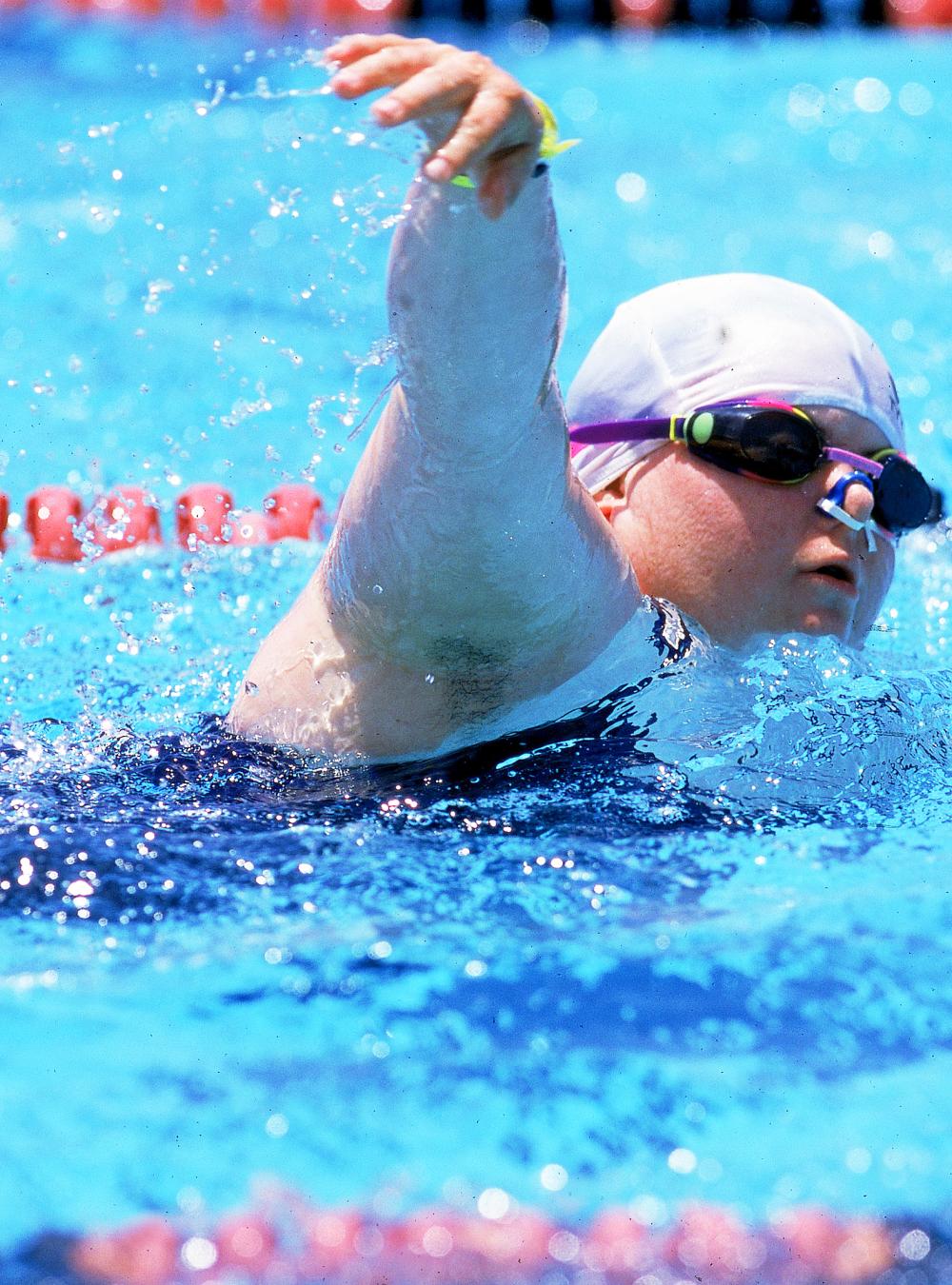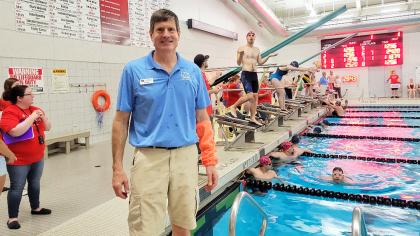In a world that puts winners on a pedestal, Ted Smits believes the integrity of the competitive event—win or lose—matters most. His volunteer work with the Special Olympics provides special needs athletes a fair, inclusive, rewarding sports experience.

Coaching from the Heart: Two Decades Supporting Special Olympics
MITRE employees take our mission of solving problems for a safer world to heart—and to their communities. Our "In the Community" series highlights the many ways our people make a difference in neighborhoods across the country and around the globe. Since 2004, Ted Smits has helped promote fair and engaging competitions for Nebraska Special Olympics swimmers. His work fosters inclusivity for all athletes—regardless of level of ability. He spoke to us about his experiences.
I’ve spent a lot of my life in the pool. I competed in high school, played water polo in college, and swam masters for a number of years. In 2004, the president of the Special Olympics Nebraska asked for help from the Omaha USA Swimming organization I supported.
Nebraska Special Olympics athletes kept getting disqualified from national and world-level competitions, due to technical stroke infractions. Special Olympics leadership asked for assistance to increase the level of competition—and put their athletes on the same competitive field as others nationally. Because of my experience, I felt I could help.
Most Special Olympics coaches are parents without any coaching or swimming experience. So we got them together and started with basic stroke technique clinics. Then we recruited senior USA swimming athletes to provide hands-on, in-water demonstrations.
We taught them correct stroke form and about technicalities that often disqualify athletes: “This is a legal stroke.” “This is not legal.” “This is a common problem athletes experience because their ankles don't like to bend that way, or their shoulders don't easily rotate that way.”
Over the years we've built on that and continue to train new coaches. We've developed a good system for Nebraska. It fosters a healthy competition for these athletes, after they put their heart and soul into the races.
In the past two decades, I’ve had the opportunity to serve as lead official for numerous regional, state, and even national Special Olympics swim competitions. I also coordinate training for officials on judging special needs athletes and recruit volunteers to support competitions.
The Nebraska state meet takes place at Creighton University each May, beginning the Thursday before Memorial Day weekend. MITRE provides civic time [paid time off for volunteerism] every year for those events, which I really appreciate. It’s truly been a rewarding experience for me.
And this effort goes beyond Nebraska—or even the U.S. In April of 2021, the Special Olympics of North America selected me as one of four panelists to lead an international discussion on recruiting, training, and retaining officials and coaches.
Ultimately, it comes down to ensuring fair competitions for all, regardless of level of ability.

Ted Smits at the pool.
Fist-Pumping at the Finish Line
Often when these athletes finish their race, even third or fourth out of a heat of eight people, they’re so excited—hollering and pumping their fists in the air.
All year they look forward to these meets. They don't have many opportunities for this kind of competitive experience and camaraderie with other athletes. It's inspiring to be part of it.
After one competition, one of the athletes approached me and said, “Sir, do you mind if I get my picture taken with you?” I'm just the referee, and here this young man just finished this race, and of all the things he could think of, he wants a picture with me.
It just shows the magnitude of this experience for these athletes. The Special Olympics give them an opportunity to compete against their peers, on a level field. And even though it’s just one day for them, it’s truly impactful.
It makes you appreciate things you get to do every day—and may take for granted. Like the fact that you can ride your bike 10 miles or toss a football around with your teenager. There's a not-insignificant segment of the population that'll never be able to do those things.
There are also the parents who have to help mentally, physically, and financially support their children their entire lives. It’s rewarding to see them get to experience this with their kids.
During a layover in the Atlanta airport a few years ago, someone came up to me and asked, “You work with the Special Olympics, don't you?” It turned out they were a parent of one of the athletes, thanking me for helping out. It’s pretty special to have someone you don't know recognize your efforts and express how much it means to them.
I always walk away from a meet amazed by what these athletes can do. I’m awed by their competitiveness before the race and their sense of accomplishment after they finish.
These young people set an example for all of us as they overcome challenges that make most of our daily problems pale in comparison. It serves as a true reminder of what can be accomplished with will and a positive attitude.
Learn more and register to volunteer for Special Olympics events.
—as told to Denise Schiavone